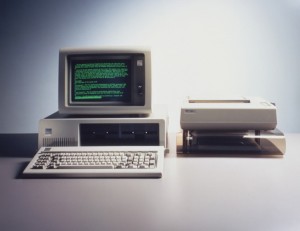This is a sponsored post. To find out more about sponsored content on Technology Bloggers, please visit our Privacy Policy.
About this time last year, game sites were abuzz with rumours that the next instalment of Rockstar’s immensely successful Grand Theft Auto series was headed toward the west coast of the United States.
The New York-based video game publishing company’s California division, Rockstar San Diego, was discovered to be scouting sites in and around Hollywood and the greater Los Angeles area. Fans were fluttering with curiosity – were they going to return to the streets of Los Santos and Vinewood, featured prominently in the 2004 GTA release “San Andreas?”
Another article on everyone’s minds was and still is what time period the next instalment will be set in; since Rockstar has spanned the series across decades. Will the next character be accessing menu options through an altered version of an HTC 4G Android phone similar to the last game, or will we be sent backward in time once again and forced to rely on payphones?
As far as the rumours from the summer of 2010, not much has come up to confirm the initial suspicions about an American west coast location. Perhaps Rockstar San Diego was doing some last-minute research for their spring 2011 release L.A. Noire. However, in-depth news on the game had already been released by March of 2010 so it’s doubtful they were doing location scouting after-the-fact. Not to mention, sources confirm that the environment of L.A. Noire, set in 1947, was created with aerial maps from the era.
So what’s to know about the next instalment of Grand Theft Auto? We know it’s going to happen soon: Rockstar’s mother-company Take-Two Interactive is expected to sell 18 million copies of the next instalment of GTA. We know it’ll be a cross-platform release like GTA IV. We know it won’t be set in Liberty City, where the historical Grand Theft Auto III was set and where the last one was set as well.
 The details we want to know remain elusive, but there’s been some interesting tidbits released over the last year. In February of 2011, Rockstar purchased several specific domains which hallmark a previous gag featured in GTA IV wherein the character can visit websites that exists in real life for gamers to visit too. In that same month, a stuntman credited on previous instalments of the series listed “Grand Theft Auto V” on his acting resume, but later changed it, saying the credit was a “typo”.
The details we want to know remain elusive, but there’s been some interesting tidbits released over the last year. In February of 2011, Rockstar purchased several specific domains which hallmark a previous gag featured in GTA IV wherein the character can visit websites that exists in real life for gamers to visit too. In that same month, a stuntman credited on previous instalments of the series listed “Grand Theft Auto V” on his acting resume, but later changed it, saying the credit was a “typo”.
But the big kahuna came later in March when a Take-Two casting call was leaked which included the name of a deviant character by the name of James Pedeaston heard on the radio in GTA IV, as well as another presumed radio personality character named Samantha who “dreams of being a Hollywood celebrity.” This could be interpreted as confirmation of the rumored Hollywood setting.
The revelation has been that unless Rockstar is playing games so to speak, which they’re no strangers at doing, the next Grand Theft Auto game will definitely be set in the present day. Other than that, details remain extremely limited. Just count on the fact that the game will be controversial, environmentally jaw-dropping, and sure to make its creators an enormous amount of money at a time when game developers are struggling to pay the bills.

